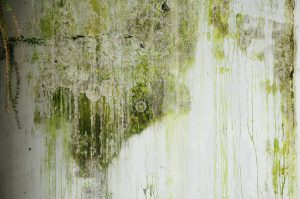 There are many types of mold, and none are actually toxic like some news outlets would have you believe. According to the U.S. Centers for Disease Control and Prevention, “toxic mold” is a misnomer. Some molds can produce toxins, but are not themselves poisonous or toxic to individuals. This does not mean you should let mold spread throughout your apartment. Mold can lead to allergy symptoms, respiratory issues, asthma attacks, as well as pneumonia and infections in individuals with compromised immune systems. You can rest a little easier knowing there is little connection between mold and serious or rare diseases, though you should work with your landlord to have the mold removed and the issue causing it repaired. If you are having issues with mold in your rental unit, contact a San Francisco tenants rights attorney at Brod Law Firm right away.
There are many types of mold, and none are actually toxic like some news outlets would have you believe. According to the U.S. Centers for Disease Control and Prevention, “toxic mold” is a misnomer. Some molds can produce toxins, but are not themselves poisonous or toxic to individuals. This does not mean you should let mold spread throughout your apartment. Mold can lead to allergy symptoms, respiratory issues, asthma attacks, as well as pneumonia and infections in individuals with compromised immune systems. You can rest a little easier knowing there is little connection between mold and serious or rare diseases, though you should work with your landlord to have the mold removed and the issue causing it repaired. If you are having issues with mold in your rental unit, contact a San Francisco tenants rights attorney at Brod Law Firm right away.
Common Types of Molds in Apartments
From the fuzz that grows on overly ripe fruit to the black dots spreading across your apartment’s wall, molds range in colors and likely physical reactions. A few of the most common types of mold are cladosporium, aspergillus, and stachybotrys atra. They can all be found in buildings where moisture is present, which can come from leaky roofs, broken washing machine hoses, and poorly sealed windows. Cladosporium can cause allergy symptoms and the rare infection. Aspergillus can similarly cause fungal infections and allergic reactions, but is generally no issue for individuals with healthy immune systems. Stachybotrys is what many people think of when they consider mold, since it is greenish black. It is no more “toxic” than the other types of mold, but can also cause allergic reactions.
Signs of Mold in Your Apartment
It is not usually a mystery that there is mold in your apartment. You may see the textured discoloration on your floors, walls, or ceilings. Larger areas of mold will start to smell musty. However, you may not realize mold is a problem if it is under the carpet, within the wall, or hiding behind appliances.
Signs of mold include:
- A damp, musty smell
- Dermatitis or other skin reactions
- Allergy symptoms like runny nose, red eyes, sneezing
- Asthma attacks
If you are suffering from allergies or more serious infections and you cannot figure out the cause, take a look around your apartment. Do you notice any water damage? Is the apartment or a room particularly damp? You may want to look behind any appliances with a water hook up like your washing machine. It is common for hoses to leak, dripping water behind an appliance and leading to hidden mold.
Your Rights as a Tenant
Mold is not beneficial to your health or the stability of your apartment. If you have mold, you have water where it does not belong. This can ruin the structure of your ceiling, walls, and floor. As a tenant, you have the right to have any issues in your apartment that lead to mold fixed and have any present mold cleaned out. If the mold is rampant, leading to health or livability issues, you may have evidence of a nuisance under the San Francisco ordinance or that the unit is uninhabitable under California law.
If you find mold in your apartment, contact your landlord in writing stating the problem. You may also want to include pictures. If your landlord does not respond or correct the problem in a reasonable amount of time, contact a San Francisco tenant rights attorney to learn about your next best step.
Call Brod Law Firm for Help
There is no specific level of mold that makes a rental unit uninhabitable or gives you a right to ask the landlord to clean it up. If there is any mold in your apartment due to dampness, leaks, or water damage, you have the right to have it eliminated to ensure you have a safe, livable unit. Your landlord should also correct the problem to prevent mold from returning. If you believe mold is causing you health issues or affecting the livability of your unit, contact an attorney from Brod Law Firm at (800) 427-7020 to schedule a free consultation.
(image courtesy of Sebastian Santanam)
 San Francisco Injury Lawyer Blog
San Francisco Injury Lawyer Blog

